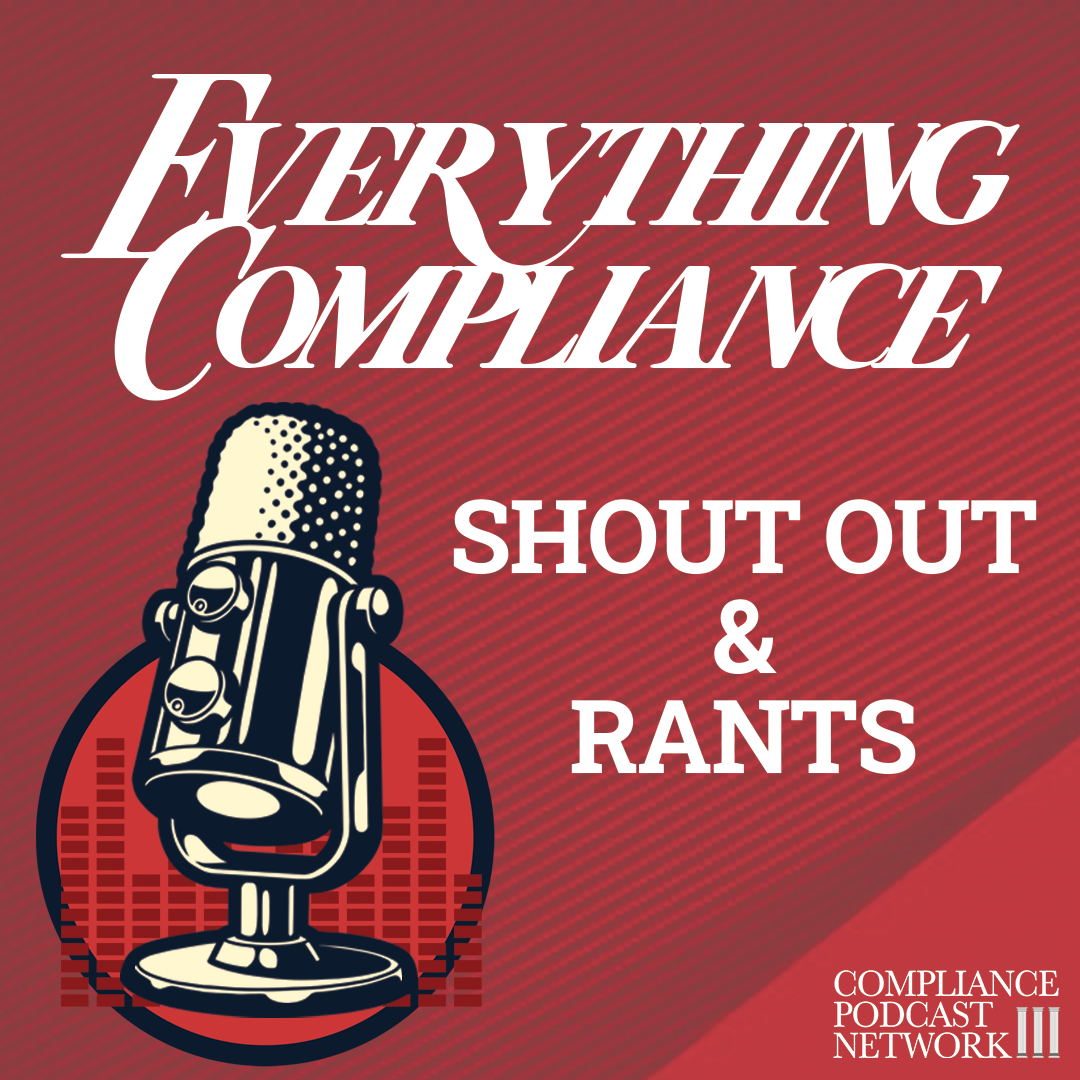In today’s episode, Kristy Grant-Hart hosts Everything Compliance, Shout Outs, and Rants (Q4-GWIC edition). The guest panelists include Karen Moore, Lisa Fine, and Hemma Lomax.
- Host Kristy Grant-Hart shouts out to her hometown LA Dodgers for winning the World Series, and she rants about one of her favorite stores, Williams-Sonoma, playing holiday music before Halloween.
- Karen Moore raves about United Airlines and their unending stream of communications.
- Lisa Fine has a rant and a rave. First, after noting she cannot play Christmas music more than two weeks before Thanksgiving, she rants about vendors pushing compliance officers to use the budget in Q4 and raves about her hometown, the Buffalo Bills.
- Hemma Lomax rants about the rush to write AI policies that are very prescriptive and exhaustive lists of approved uses with approved tools only because we have to be realistic about approaching these interests.
The members of this special episode of Everything Compliance are:
- Karen Woody is one of the top academic experts at the SEC and the co-host of the award-winning podcast The Woody Report.
- Karen Moore is an Adjunct Law professor at the Fordham School of Law.
- Lisa Fine is a co-host of the award-winning Great Women in Compliance.
- Hemma Lomax is a co-host of the award-winning Great Women in Compliance.
The host of this special episode of Everything Compliance is Kristy Grant-Hart, founder of Spark Compliance and co-host of the award-winning podcast 2 Gurus Talk Compliance.




